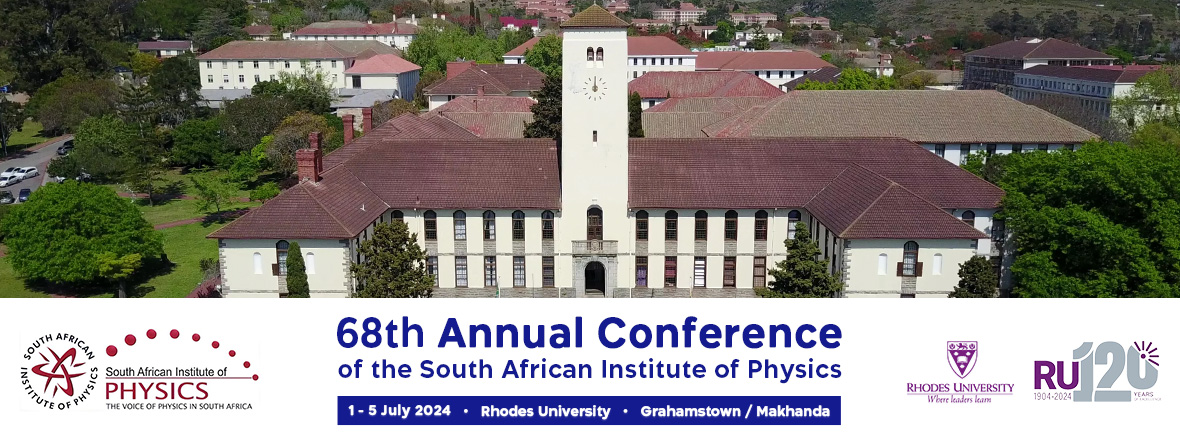Plenary Speakers
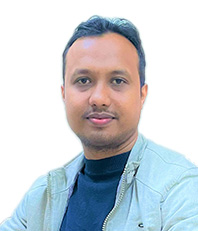
Dr Jitumani Kalita
Assistant Professor - Department of Physics - Cotton University, India
Dr Jitumani Kalita is an Assistant Professor in the Department of Physics, Cotton University, Guwahati, India. Dr Kalita earned his PhD and MSc in Physics in 2015 and 2011 respectively from Gauhati University, India.
Following completion of his PhD, Dr Kalita joined the Luminescence Research Laboratory of the Department of Physics and Electronics, Rhodes University as a Post-doctoral Fellow in 2916.
Dr Kalita’s research interests are on luminescence dosimetry and study of point defects in crystalline materials using various stimulated luminescence techniques. He is also working on high energy active ionizing radiation sensors using semiconductor materials.
Thus far, Dr Kalita has published 65 research papers in peer reviewed international journals, a book on thermoluminescence properties of natural minerals and authored 4 other book chapters. In 2013,
Dr Kalita was awarded the Founder President Award by the Thermo-Physical Society of India for his excellent research findings. Dr Kalita is currently running various projects including research projects on the development of real-time active radiation sensors.
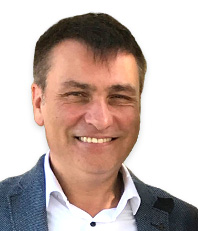
Prof Thomas Konrad
Professor - School of Chemistry and Physics, University of KwaZulu-Natal
Prof Konrad finished his MSc studies of physics at the University of Tübingen in Germany with a dissertation on highly excentric satellite orbits using a new approach with elliptic functions on behalf of the German Aerospace Agency for the MARS 96 satellite. Thereafter he completed a MSc degree by course work in quantum field theory at Imperial College in London with a dissertation on non-perturbative methods in quantum field theory. Eventually, Konrad became an expert in quantum measurement theory and finished a dissertation supervised by Jürgen Audretsch at the University of Konstanz in Germany. After his PhD he worked for three years as Juergen Audretsch’s assistant and then joined the University of KwaZulu-Natal (UKZN) in Durban as associate professor in physics. In 2020 he was promoted to Full Professor and to Research Professor in 2024.
In Durban he formed a dedicated research group working on subjects from Quantum Information Processing and Communication (QIPC), Quantum Measurement, as well as Foundations of Quantum Physics. In recent years his research has focused on applications in Quantum Technologies such as Quantum Control, Quantum Communication and Quantum Computation. His work is published in journals for specialists such as Physical Review A and for a broader scientific audience, i.e., Physical Review Letters, Nature Physics, Nature Communications and Science Advances. Konrad has been involved in national and in international collaborations. The quality and impact of his research receives considerable international recognition according to his B rating by the National Research Foundation (NRF).
Prof Konrad served on the council of the SAIP for the maximal time (six years) and during this period, he was in charge of the marketing and public relations of the organisation. From 2011 to 2017, he worked as editor for the quarterly newsletter of SAIP. Physics Comment aspires to be the voice of Physics in South Africa.
In addition, Konrad is advocating the interplay between science and arts. He has curated two art exhibitions, 2015 Reflections on light and 2017 Science meets Arts where scientists worked and exhibited together with artists. He also organises Physics meets Jazz events. Since 2021, he facilitates weekly mathematics tuition for 300-400 high school learners in a township employing STEM students from UKZN.
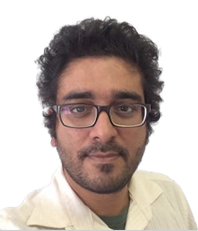
Prof Smarajit Triambak
Professor - University of the Western Cape
Prof. Smarajit Triambak is an experimental nuclear physicist by training.
His research interests are in the fields of neutrino physics, tests of fundamental symmetries, nuclear astrophysics and nuclear structure.
Prof. Triambak did his undergraduate and post graduate studies in the western city of Pune, in India, before moving to the United States for his PhD. His PhD research focused on studies of isospin symmetry violations in atomic nuclei.
Following this work, which was performed at the University of Washington, Seattle, Prof. Triambak moved to Canada as a post-doctoral fellow, first at the University of Guleph in Ontario, and then at TRIUMF, Canada’s particle accelerator centre, located in Vancouver, British Columbia.
Since 2013, Prof. Triambak has been based at the Department of Physics and Astronomy, UWC, as SARChI Chair in Nuclear Science.
He has served on several national and international committees related to research and training in subatomic physics, and through his leadership has been instrumental for UWC’s induction in a large-scale international experiment called nEXO. The nEXO experiment aims to measure a hitherto unobserved process called neutrinoless double beta decay, whose discovery would have far-reaching implications in the field of elementary particle physics.
At present, UWC is the only institution from Africa and the Southern Hemisphere that is part of this international collaboration, which comprises 34 institutions across 9 countries.
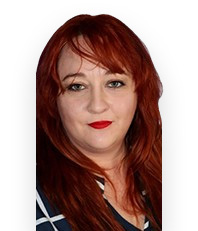
Dr Amoré Nel
Applied geomagnetic researcher at SANSA Space Science
Amoré Nel attained her BSc in Applied Mathematics at the University of Stellenbosch and her BSc (Hons) in Astrophysics at the University of the Free-State. She was awarded the South African National Space Agency Masters Scholarship and attained her MSc (with distinction) at North-West University studying near-Earth solar turbulence.
She then attained her PhD in Space Physics in 2019, reporting on the discovery and analysis of a new type of aurora while on field work in Norway and named it the anti-black aurora. This discovery was reported in a paper published in Scientific Reports.
She was part of the 2018/2019 Antarctic take-over team doing routine maintenance on the scientific instrumentation at the South African Antarctic base.
Her postdoctoral work was at the Helmholtz GFZ German Research Centre for Geosciences (Potsdam, Germany) where focus was on recording and analysing magnetometer observatory data, Southern African regional geomagnetic field models, and external geomagnetic field studies using joint satellite and ground-based observatory data.
Her areas of interest have been studying near-Earth solar turbulence and the solar-cycle dependences of solar turbulence quantities, upper atmosphere studies using incoherent scatter radar and optical methods to investigate small scale auroras in Norway, and abrupt secular variation changes in Earth's geomagnetic field.
Currently she is the applied geomagnetic researcher at SANSA Space Science and with her Thuthuka grant awarded in 2022 aims to further Pan-African geomagnetic research and innovation by deploying magnetometer stations near and adjacent the magnetic equator in the African sector.
She is passionate about promoting international cooperation in the field of Space Science and her aim is to create a strong link between the South African National Space Agency and other African scientific institutes, enabling cross-training and knowledge sharing.
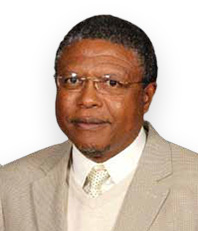
Prof Phuti Ngoepe
Professor - University of Limpopo
Prof. Ngoepe is a Distinguished Emeritus Professor at the University of Limpopo and a renowned expert in computational modelling of materials properties. He established the famed Materials Modelling Centre at the same university.
His ouvre of published papers in respected peer-reviewed journals and conference presentations is encyclopaedic. His accolades include the University Council Prestigious Award, the Onkgopotse Tiro Award and, the Order of Mapungubwe (Silver) awarded by the President of South Africa in recognition of the excellence and impact of Ngoepe’s contributions to science.
Prof Ngoepe is a Founding Member of the Academy of Science of South Africa. Prof. Ngoepe’s research in computational modelling has evolved along many themes including work on energy storage materials, principles of alloy fabrication and forcefields development and application.
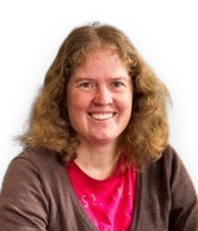
Dr Jennifer Williams
Senior Lecturer - Rhodes University
Jennifer Williams was born and raised in Bulawayo, Zimbabwe. She attended Rhodes University where she attained her BSc honours in Mathematical and Theoretical Physics and also a teaching diploma. She then returned to Zimbabwe where she taught maths and physics at high school level for four years. Jennifer and her husband spent fours years in the United Kingdom where she completed a Certificate of Advanced Study in Mathematics (colloquially known as “Part III Mathematics”) at the University of Cambridge and going on to complete her PhD in phenomenological high energy particle physics at the University of Cambridge's Cavendish Laboratory.
In 2006 Jennifer and her husband returned to Rhodes University where they both received lecturing positions, Jennifer in the Department of Physics and Electronics, where she has been ever since. Jennifer’s research interests have migrated from particle physics to physics education research. As well as supervising Masters and PhD students, she teaches a wide range of undergraduate courses across all years, including at honours level.
In 2015, Jennifer was nominated for and received the prestigious Vice Chancellor’s Distinguished Teaching Award, for outstanding teaching in the university. In 2022, she was nominated for the same award in the senior category.
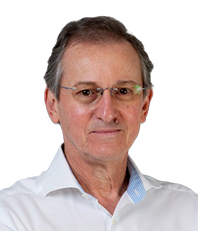
Prof Francesco Petruccione
Professor of Quantum Computing - Stellenbosch University
Interim Director National Institute for Theoretical and Computational Sciences (NITheCS)
Interim Director National Institute for Theoretical and Computational Sciences (NITheCS)
Francesco Petruccione is a physicist and academic leader, serving as both a professor of Physics at Stellenbosch University and the Director of NITheCS. Prior to his appointment as Director, he served several years as the Interim Director of NITheCS, having previously held the position of professor and Pro Vice-Chancellor of Big Data and Informatics at the University of KwaZulu-Natal (UKZN). He is also a member of the Academy of Science of South Africa and a Fellow of the Royal Society of South Africa.
Born in Genoa, Italy, he pursued his undergraduate studies in physics at the University of Freiburg, Germany, where he earned his first degree in the field. He continued his academic journey at the same institution, earning his doctorate in 1988 and his Habilitation degree (Dr. rer. nat. habil.) in 1994.
In 2004, he became a professor of Theoretical Physics at UKZN, and a year later was awarded an Innovation Fund grant to establish a Centre for Quantum Technology. Prof Petruccione went on to hold the position of South African Research Chair for Quantum Information Processing and Communication Technology in 2007, and also held an adjunct professor position at the Korean Advanced Institute for Science and Technology.
He has published more than 190 papers in refereed scientific journals, has co-authored a monograph on ‘The Theory of Open Quantum Systems' and co-published a monograph with Maria Schuld on ‘Supervised Learning with Quantum Computers’. He is the editor of several proceedings volumes and special editions of scientific journals, also serving on the editorial board of the journals ‘Open Systems and Information Dynamics’, ‘Scientific Reports’, and ‘Quantum Machine Intelligence’.
In 2023 he was honoured with the title of Cavaliere della Stella d’Italia, or Order of the Star of Italy, at a function at the Italian Embassy in Cape Town for his groundbreaking work in physics and quantum computing.
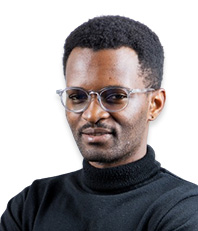
Dr Isaac Nape
Researcher specializing in the fields of photonic and quantum computing
Dr Isaac Nape is a researcher specializing in the fields of photonic and quantum computing, where his work is concentrated on exploring higher-dimensional quantum information processing using structured light and harnessing it as a resource for computing.
In addition, he also focuses on quantum searching and optimization algorithms as tools for solving inference and inverse problems in physics and other related fields. Notably, he is a recipient of the Friedel Sellschop Fellowship (2024), Meiring Naudier Medal from the Royal Society of South Africa (2024), the Jubilee Silver Medal by the South African Institute of Physics (2023), named among top 200 young South Africans in technology and innovation by Mail and Guardian (2023) further highlighting his influential standing.
He also received an inaugural chair from the OPTICA society, where he serves as the Optica Emerging Leader in Optics Chair.
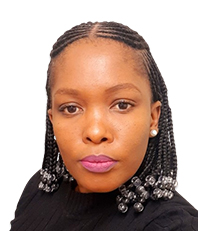
Dr Ledwaba
Associate Professor - University of Limpopo
Raesibe Sylvia Ledwaba is an Associate Professor of Physics at the University of Limpopo
based at the Materials Modelling Centre.
She earned her PhD in Physics from the University of Limpopo specializing in computational modelling of materials. She was a beneficiary of the ESRC-NRF Newton collaborative research fund for her PosDoc research at the University of Southampton.
She was later awarded the NRF Thuthuka Grant based on a novel research concept that was aimed at developing All Solid State Battery Technology (ASSB) by using machine learning and multiscale modelling techniques.Prof Ledwaba is a recipient of several accolades including as one of the Inspiring Top 50 Women in Science, Technology, Engineering, and Mathematics (2019) by the Embassy of Netherlands and being listed amongst the Mail and Guardian 200 Young South Africans, in the Science and Technology Category (2017).
She is a founding member of Women in High-Performance Computing (WHPC-SA).

